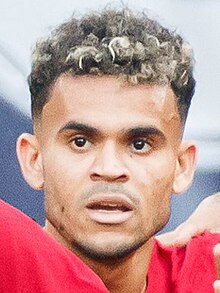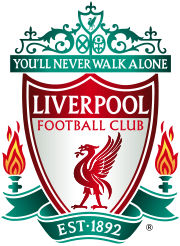Article body analysed
World Cup Getty Images The casting call is almost over, and the director has started picking his leads. With the 2026 World Cup draw taking place on December 5, we are heading into the crunch qualifying period, but 32 sides have already secured their place at next summer’s tournament, to join hosts Mexico, Canada and the United States. Advertisement Among those qualified are many of the usual suspects, such as Brazil, England and Argentina, but the expansion from 32 to 48 teams means more seats at the table — including (so far) three debutants. The Athletic runs the rule over the sides that have punched their ticket early, picking out a selection of the 12 best players you’ll be able to watch next summer. Luis Diaz has blossomed at Bayern Munich since his summer transfer from Liverpool, and if he can bring that scintillating form into next summer’s showpiece, Colombia could cause a stir. He was the driving attacking force in his country’s qualification, scoring seven goals, a tally only bettered by Lionel Messi (8). Diaz’s obvious skill is complemented by a relentless tenacity off the ball, constantly hounding the opposition defence. That refusal to give up on lost causes was on show in his improbable goal against Union Berlin last weekend. After turning over the ball on the goal line, he somehow squeezed a finish in from an angle of just 1. 8 degrees. That blend of skill and grit is going to be a massive handful for defenders across the tournament. The record international goalscorer will take to football’s grandest stage for one last time. Cristiano Ronaldo said this week that next summer’s World Cup will be his last, capping off a remarkable career in a Portuguese shirt. But Ronaldo will not go gently into retirement. He may have faded on the club scene — now playing for Saudi side Al Nassr — but his goalscoring exploits continue to hog the limelight in the international game. He’s now scored a faintly ludicrous 143 goals for Portugal, well clear of Messi’s international tally (114). That these goals have not translated into a World Cup victory will gnaw at Ronaldo. It’s the only accolade missing from his trophy cabinet and expect him to pour every last drop of himself into trying to secure it. Endearingly dubbed ‘the Egyptian King’ by Liverpool fans, Mohamed Salah holds a similar stature when he pulls on the national shirt. He fired Liverpool to their 20th league title last season, finishing as the competition’s top scorer with 29 goals. Advertisement Egypt are even more reliant on this prolific output: with most of their squad drawn from the domestic league, Salah’s quality becomes even more vital. He has scored 63 times in 108 appearances for Egypt, but his World Cup career has been a story of frustration. He struggled with a shoulder injury in 2018, while Egypt missed out on qualification entirely in 2022. At 33, this is probably his last chance to showcase his elite level on the global stage. Arsenal have the meanest defence in the Premier League, conceding just five goals in 11 games this season, and at its steely centre lies Brazilian centre-back Gabriel, albeit perhaps not in the short-term after he picked up an injury in their friendly with Senegal at the weekend. He is physically commanding: no Arsenal player has won more aerial duels than Gabriel (93) since the start of last season. That dominance is a potent attacking weapon too: his 18 set-piece goals top the Premier League charts since he joined in 2020. Curiously, his excellent club form has not translated into consistent international appearances. Gabriel, now 27, has only 17 caps for Brazil, and next summer will be his first World Cup. But 10 of those caps have come in the last two years, a sign of his growing presence, and his defensive quality will provide Brazil with a reliable anchor at the back. Liverpool’s success in modern times effectively began with the signing of Alisson from Roma in 2018-19. Since then, he has been the Premier League’s standout goalkeeper, a presence of calmness and solidity in Liverpool’s defence. His shot-stopping is immense. Since 2018-19, Alisson has faced 783 shots in the Premier League, conceding 194 times. The quality of those shots, based on their expected goals on target (x GOT) values, suggests an average goalkeeper would have conceded 22 more. His distribution is equally impressive, comfortable playing long or short on either side. Fitness is his only concern. He is currently out injured and has played just 28 domestic league games across the last two campaigns. Advertisement If he stays injury-free, Brazil will have their posts guarded by arguably the tournament’s best shot-stopper. At 32 years old, Harry Kane is at an age where centre-forwards typically start to wind down on the road to retirement. Instead, England’s record goalscorer is in the form of his life. He is the only player able to go toe-to-toe with Erling Haaland in front of goal this season, scoring 26 times for club and country. But Kane’s game is far more than just goals. He has compensated for his declining pace by developing a superb playmaking side, dropping deeper and spraying pinpoint passes, as his pass map from Bayern’s recent 2-1 win over Borussia Dortmund shows. With England boasting an array of skilful wide players, Kane’s all-round game should help maximise the squad’s talent next summer. Three countries — Jordan, Uzbekistan and Cape Verde — will be appearing at a World Cup for the first time next summer. These are not exactly renowned football powerhouses, making Manchester City’s Uzbek centre-back Abdukodir Khusanov the clear pick of the bunch among the rookies. For rank outsiders who will be on the back foot for most of their games, having your standout player be a centre-back is convenient. Khusanov is the aggressive type who throws his body on the line and contests every duel with ferocious vigour, traits that his country will lean heavily on. He also has the added benefit of the ultimate inspiration on the sideline: Uzbekistan are managed by Fabio Cannavaro, the former Italy centre-back who captained his country to the 2006 World Cup, and then won the Ballon d’Or later that year. As the reigning Ballon d’Or winner, Ousmane Dembele practically picks himself. The Paris Saint-Germain forward earned that crown through his dazzling performances last season, helping his side lift the Champions League. Advertisement For years a story of unfulfilled potential, his career was transformed when Luis Enrique moved him into the No 9 role. From there, his blend of clever movement, mesmerising dribbling and clinical finishing has catapulted him to the summit of the game. Unfortunately for Dembele, he is currently nursing a hamstring injury that has kept him out since September. Once he returns, he will be eager to use his world-class talent to atone for the bitter disappointment of his last World Cup appearance, in the 2022 final against Argentina, where he conceded a penalty before being substituted at half-time. When Lionel Messi hoisted the World Cup trophy aloft in Qatar, it felt like the perfect ending to a glittering career — the final triumph that had agonisingly eluded him for so long. But, to the delight of football fans of all nationalities, the Inter Miami forward has stuck around for another tournament, and he will be determined to defend Argentina’s crown in North America. Playing his club soccer in one of the host countries, Messi — even at 38 years old — has proven far too talented for MLS rivals. His 57 goal contributions in the 2025 season were 15 clear of San Diego’s Anders Dreyer in second, and he continues to deliver for Argentina, finishing as the top scorer in CONMEBOL qualifying. Messi has achieved everything there is in the sport, so this tournament is something of a free hit for him. But he still has more than enough talent to be the difference-maker once again. Conspicuous by his absence at the last World Cup, there was no way Erling Haaland was going to let this one slip by. Scoring a staggering 16 goals in qualifying, including five in a 9-1 win against Moldova and two last night against Italy, Haaland has powered Norway to their first World Cup since France 1998, two years before he was born. His game is almost exclusively built around goalscoring. Often peripheral in the build-up, Haaland lurks ominously in the background, waiting for a sniff of a chance. Once that chance comes his way, he’s deadly. Advertisement His searing pace and hulking physicality make him almost impossible to stop, on the ground or in the air. If he keeps scoring at his current rate, he’s on course to hit an eye-watering 95 goals after 60 games this season. Kylian Mbappe did not win the World Cup last time out, but it wasn’t for lack of trying. The Real Madrid forward scored a hat-trick in the 2022 final, yet still ended up on the losing side courtesy of a penalty shootout. The anguish hasn’t led to a loss of focus, with the French forward as devastating as ever. He leads La Liga with 13 goals from 12 games this season and his explosive acceleration and masterful finishing remain razor-sharp. On a personal level, there is every chance Mbappe — currently on 12 World Cup goals — eclipses the record haul of 16 set by Germany’s Miroslav Klose in next summer’s tournament. But individual achievements will fade into the background as he focuses on adding to his 2018 title. This is the one that will ignite debate and fill column inches right up until the first whistle of England’s opening game. Jude Bellingham was England’s talisman at Euro 2024, famously exclaiming “Who else? ” after scoring a last-minute bicycle kick against Slovakia. Since then, England have replaced head coach Gareth Southgate with Thomas Tuchel, and Tuchel seems to have taken Bellingham’s rhetorical question seriously. He was left out of their last squad, and was benched last night against Serbia. After starting the season recovering from shoulder surgery, Bellingham now looks back to his usual, supreme best. Leaving him out in the summer would be a bold call, particularly given his penchant for late, decisive goals — he has scored six of them in La Liga and the Champions League since joining Real Madrid in 2022-23. Spot the pattern. Connect the terms Find the hidden link between sports terms Play today's puzzle Conor is a Data and Tactics Writer for The Athletic. Before joining The Athletic, he worked as a Data Journalist at Sky Sports News for two years, producing analytical features on football and other sports. Conor pivoted into journalism after starting his career in data science and quantitative analysis. He focuses on delivering insightful, engaging, and enjoyable data-driven analysis.


